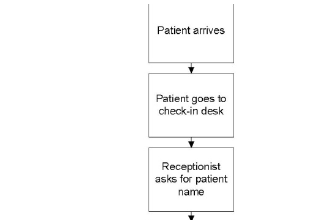Google announced their latest round of AdWords updates at the recent Google Performance Summit. The biggest takeaway? Mobile is stepping squarely into the spotlight. At last week’s Google Performance Summit (GPS), company executives gathered to announce Google’s latest, “mobile-first innovations.” If nothing else, the GPS made it clear that no matter your stance on mobile up to this point, it’s now officially a non-negotiable best practice for marketers across nearly every industry. Of Google’s more than two trillion searches per year, according to Search Engine Land, more than half come from mobile devices (of which nearly a third are location-based). In keeping with the continued dominance of mobile search, Google is poised to make a host of changes to their AdWords and Google Analytics platforms. For healthcare marketers looking to attract local, mobile-savvy patients, these changes will present both new opportunities and challenges to overcome. For instance, Google plans to roll out expanded text ads for every device, providing mobile users with longer ad headers, descriptions, and relevant displays (Google reports some early testers seeing 20% improvements in clickthrough rates with these ads). The copy used in these ads is crucial, and the onus is on healthcare marketers to make their mobile ads highly relevant and actionable for their intended audience. Google’s other mobile innovations may significantly alter how healthcare marketers approach ad campaigns and keyword bidding in general. This will likely prove beneficial to marketers, granting them greater control over their ads and facilitating first contact with patients in the earliest stages of their path to treatment.
Promoted Pins
Local searches are growing 50% faster than overall mobile searches, according to Google, and the new “promoted pins” or “promoted locations” feature will allow medical practices and hospitals to highlight their physical location and location extensions on Google Maps. As Search Engine Land notes, the update will also give location pages a “new look,” allowing marketers to customize their online brand. Although branded pins may seem better suited to retailers or restaurants, they’re actually critical to healthcare professionals. Local searches come with an enormous “intent to buy”, so to speak — 76% of smartphone searches result in an in-person visit within one day — which means that if someone hurts their back, for instance, there’s a good chance they’ll search “chiropractor” or “back pain” on their Google Maps smartphone app at home to identify accessible options before making a decision — especially considering the constantly-evolving patient path to treatment, where consumers seek a seamless transition “from search to store.”
New Google Display Network Mobile Ad Capabilities
As Marketing Land reports, new responsive mobile display ads will automatically and dynamically adjust to the aesthetics of a Google Display Network (GDN) publisher; marketers need only provide headlines, a description, a URL, and an image, and the ad will “unlock new native inventory,” morphing seamlessly to fit with the publishing site content and design. Plus, display remarketing campaigns will soon benefit from an even larger cross-exchange ad network, says Google. For medical marketers, this is huge, as it allows them to make mobile the focus of their campaigns, thereby reaching a significant audience without having to spend time and money on less effective channels. For example, clinics that rely heavily on walk-ins can focus their ad spend on mobile and “near me” searches, while those offering less casual procedures, such as plastic surgeons, can favor desktop where more in-depth research typically occurs. It will also be a great way to drive app downloads; Google explains that such techniques have already netted more than two billion downloads, according to Marketing Land.
Decoupling Mobile & Desktop Bidding
Google will now grant marketers a much higher degree of control over how they allocate their AdWords bids for different devices. As Search Engine Land reports, mobile ad bidding will no longer be tied to a base desktop bid (tablet and desktop will also split, forming unique device categories). This means that medical marketers will now be able to anchor their AdWords spending to one device — mobile, desktop, or tablet, whichever is most valuable — and then adjust spending for other devices accordingly, Google notes. The upshot for medical marketers is that if they want to ramp up mobile ad spending, they won’t increase desktop ad spends simultaneously to do so. Marketers still have to spend something on the other two device networks (Google leaves no choice, here), but it enables them to rapidly and flexibly adjust their ad spend, in real time, in accordance with what’s working and what isn’t. No matter the particular path to care that patients take, it’s likely going to be both digital and proactive; they’re looking for seamless, instant results in order to receive immediate treatment. Simply put, healthcare digital marketers must stay current with all of Google’s updates and emerging best practices in order to ensure a steady stream of new patients and long-term success. (Main image credit: Ingo Joseph/Pexels)








